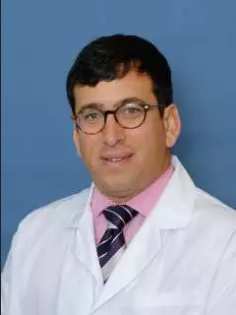
MET is a gene that encodes for a MET protein. It is an important signaling protein known to play many different important roles, from the development of embryos to wound healing in adults. However, when specific MET gene alterations occur, they can also lead to the development of non-small cell lung cancer (NSCLC).
Among patients with NSCLC, approximately 3%-4% have these specific MET alterations. Researchers have developed treatments that target these altered MET pathways and shrink tumors. Two of these targeted therapies have been approved by the US Food and Drug Administration (FDA).
LUNGevity Foundation spoke with Edward Garon, MD, director of thoracic oncology at the UCLA Jonsson Comprehensive Cancer Center and member of LUNGevity’s Scientific Advisory Board, to learn more about MET targeted therapies and the exciting future of MET-based treatments.
LUNGevity Foundation: What types of MET driver alternations have been identified?
Dr. Edward Garon: Two main types of MET driver alterations have been identified. The first driver is called METex14skipping. In this type of mutation, the MET protein is missing an important piece that normally allows the protein to be destroyed as needed. This mutation disrupts the normal cycle of the MET protein and encourages tumor growth. The second driver is called MET amplification. Normal cells have two copies of the MET gene. Tumors from patients with MET-amplified NSCLC have more than two copies of the MET gene in their DNA – sometimes more than 10 copies. This can also encourage tumor growth.
LF: Can both types of mutations (METex14skipping and MET amplification) be treated with MET targeted therapies?
EG: There are two MET targeted therapies currently approved by the FDA for the treatment of advanced-stage NSCLC with METex14skipping driver mutations. They are capmatinib (Tabrecta®) and tepotinib (Tepmetco®). Both of these treatments are MET inhibitors that are known to impede the signaling of the MET pathway. They both have also been tested in patients with MET amplification. However, researchers didn’t find a strong enough response for the treatments to become approved for patient use despite benefit being seen among some patients.
LF: How successful are these treatments?
EG: These are still relatively new treatments. Capmatinib was approved in 2020 and tepotinib was approved in 2021, so we are still learning a lot about these treatments and how to optimize them for patients. But they are generally well tolerated by patients, and they are certainly an option to consider for patients with advanced-stage NSCLC and METex14skipping driver mutations.
LF: Do patients develop resistance to these treatments?
EG: As with all targeted therapies in lung cancer, patients do eventually develop resistance to these treatments. Research is ongoing to understand the mechanisms of this drug resistance so that we can develop treatments to shrink the tumors permanently or at least for a longer period of time.
LF: Who is likely to have MET driver alterations?
EG: MET drivers are found mostly in patients with adenocarcinoma, a type of NSCLC. The median age of patients found to have MET driver mutations is similar to the median age of patients diagnosed with lung cancer overall (71 years). Typically, patients who have MET drivers are older than patients who have EGFR driver mutations.
LF: How can patients find out if their tumor has a MET driver alteration?
EG: Patients need to send tissue biopsy and/or blood samples to a laboratory to be tested for driver mutations. It is important that patients talk to their physicians and clarify which biomarkers will be tested by the laboratory.
LF: What promising research is on the horizon?
EG: There are many different ways researchers are approaching the treatment of advanced NSCLC with MET driver alternations. For example, there is some great work using antibodies targeting MET and also antibodies that are used to deliver drugs specifically to the tumor cells. Researchers are also looking at combining MET inhibitors with other treatments to improve outcomes for patients.
LF: What challenges are in the field?
EG: We know that more people need to be tested for biomarkers so they can be treated with targeted therapies for their specific mutations. This is a big need in the field, and many organizations, including LUNGevity, are working toward educating patients and/or physicians about the importance of biomarker testing.
LF: Anything you want to add?
EG: There is a lot of great research going on in the field, so the guidelines are updated often. It can be confusing for people. So, it is important to find ways (like this article) to help people understand the current status of lung cancer targeted therapies. More changes, more improvements, and more progress are heading our way.
